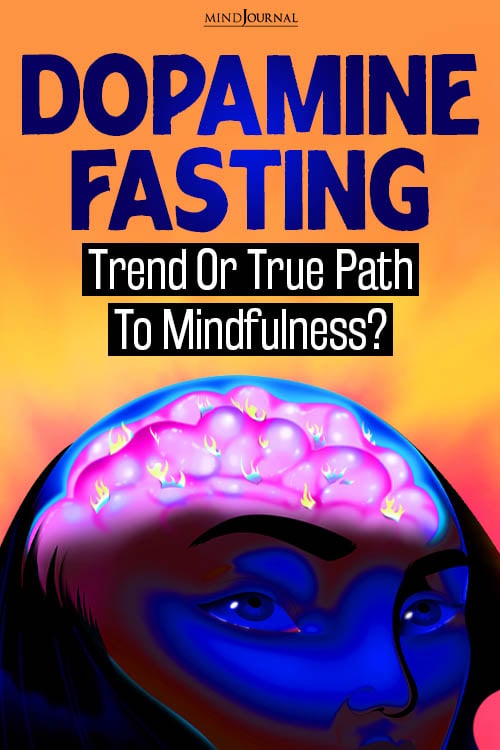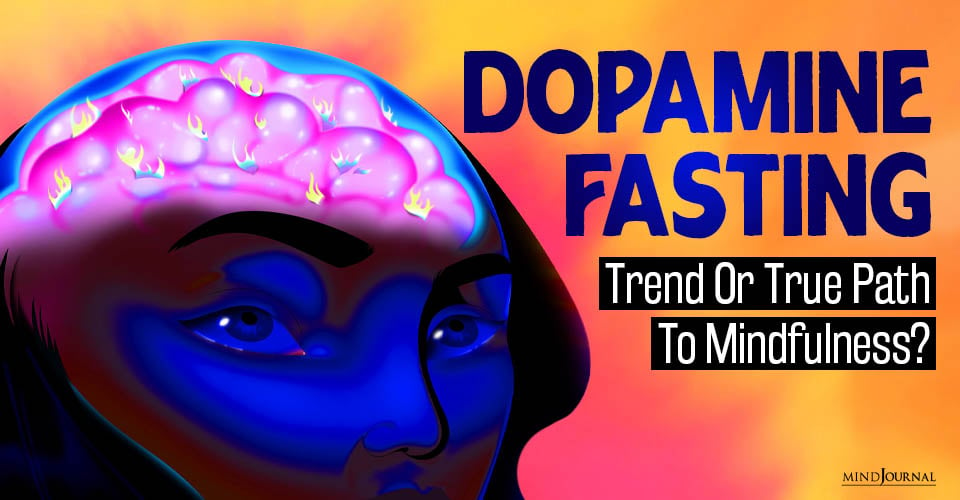Our brains are constantly bombarded by stimuli, whether it’s binge-watching TV shows, mindlessly scrolling social media, or indulging in junk food, we often seek the next “hit” of pleasure. But what if I told you that there is a practice that aims to reset our brain’s reward system and restore mental clarity? Let us learn more about dopamine fasting.
Activities such as video games, substance use, shopping sprees, or even indulging in food cravings dump dopamine into the brain, the chemical messenger responsible for generating feelings of reward and pleasure.
Though these episodes of dopamine are pleasing and pleasurable at the moment, constant stimulation negatively affects individuals over the long term.

Sooner or later, it can lead to mental exhaustion, lack of motivation, and inability to concentrate as the brain becomes imbalanced due to repeated surges of this “feel-good” neurotransmitter.
Read More Here: 10 Ways To Supercharge Your Dopamine Levels Naturally And Never Feel Depressed Again
What Is Dopamine Fasting? How Can It Help Us?
If you’re wondering ‘what is Dopamine fasting?’ – it’s a trendy concept where people voluntarily abstain from overstimulating activities for a set period of time.
The goal is to give the brain a break from the dopamine spikes caused by activities like social media, junk food, video games, or other instant gratifications.
The idea is not to eliminate dopamine entirely but reduce the constant overstimulation that can lead to dependency and burnout.
Dopamine fasting helps reset the brain’s sensitivity, allowing you to find joy in simpler experiences like going for a walk, reading a book, or having a meaningful conversation.
So, How Does Dopamine Fasting Work?
If you’re wondering “does dopamine fasting work?”, well many people practice it in different ways. Here are some general dopamine fasting rules:
1. Avoid Stimulations
No social media, television, or video games.
Minimize phone calls.
Caffeine, sugar, and processed foods consumption is limited or completely avoided.
2. Low-Stimulation Activities
Meditate or engage in mindfulness
Spend time in nature
Journal, read, or do some light creative work
3. Cut Instant Gratification
Online shopping or even mindless snacking is a no.
Focus on purposeful, intentional actions.
4. Adopt Solitude and Stagnation
Engage in as few conversations as possible.
Take time to be by oneself or to relax without distractions
5. Gradual Exposure
Upon breaking the fast, slowly reintroduce pleasant activities in moderation.
Duration:
The duration of dopamine fasting could be from a few hours to even an entire day, depending on what feels feasible for someone. Some people fast regularly; one individual mentioned fasting every week.
The point is not to get rid of the dopamine but to abate overstimulation, allow your brain to rebalance itself, and gain focus and enjoyment of everyday life.
Dopamine Fasting Benefits
This practice offers several potential benefits, particularly for mental health and well-being. Here are some of the dopamine fasting benefits below:
- Improved focus and concentration: By reducing the constant barrage of overstimulation, dopamine fasting can help restore your ability to focus on tasks for extended periods.
- Reduced anxiety and stress: Engaging in fewer high-intensity activities gives the mind a break, potentially lowering stress levels and providing a sense of calm.
- Better self-control: With fewer distractions, dopamine fasting helps individuals become more aware of their impulses and cravings, giving them better control over their actions and habits.
- Enhanced appreciation for simple pleasures: One of the key goals of dopamine fasting is to recalibrate the brain’s reward system, helping people to find joy in everyday experiences that may have previously gone unnoticed.
- Increased creativity: By stepping away from overstimulation, some people report a boost in creativity as their minds are free to wander and process information in new ways.
This concept has gained popularity, but it’s important to approach it with caution. Dopamine is not inherently bad, nor is it something that should be “fasted” from in the same way that one might fast from food.
Everyday activities, like talking to a friend or enjoying a cup of tea, also release dopamine. The goal of dopamine fasting should not be to eliminate dopamine entirely but to create a more balanced approach to the stimuli we expose ourselves to.
If you’re interested in trying dopamine fasting, start small. Set aside a few hours or a day to avoid over stimulating activities, and gradually increase the duration if you feel the need for a longer reset.
Be mindful of how you feel during and after the fast, and use the experience as an opportunity to reflect on your relationship with technology, food, and other sources of instant gratification.
Read More Here: How To Increase Dopamine Levels Naturally? 10 Ways
Share your thoughts on the dopamine fasting rules in the comments below!













Leave a Reply